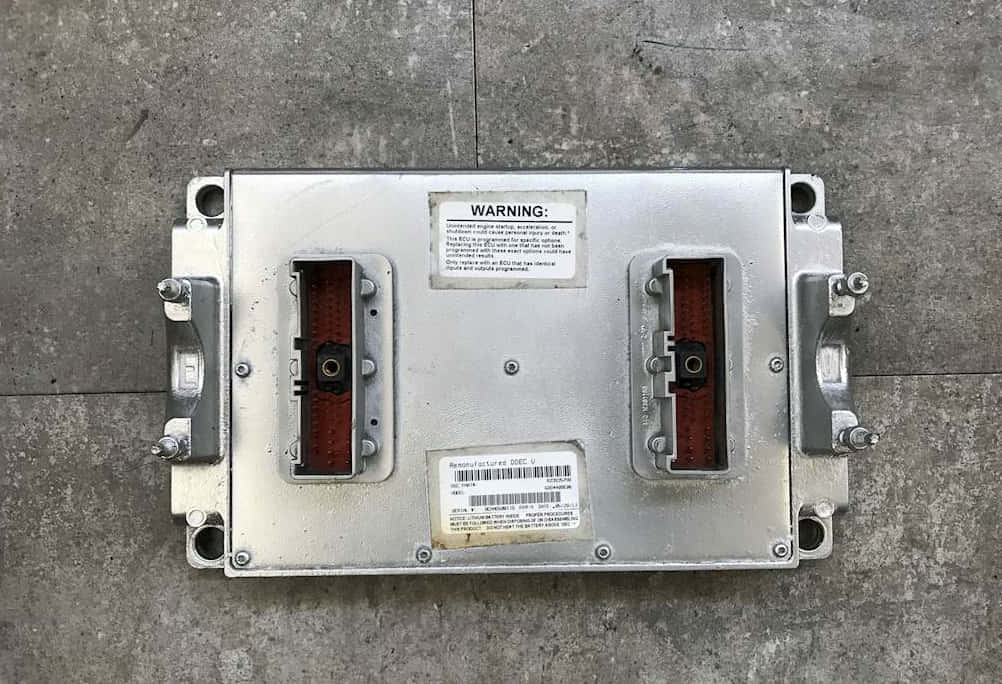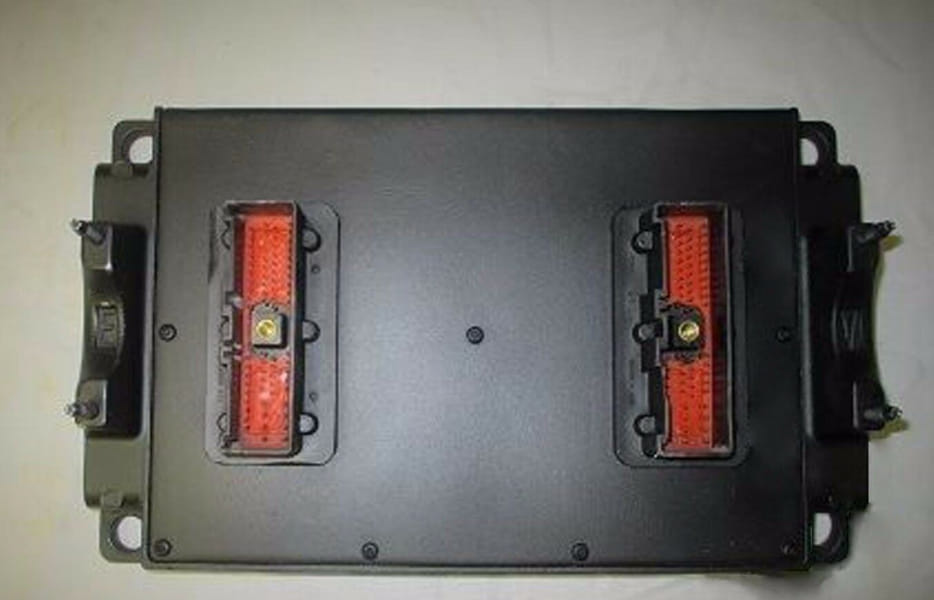There are quite a few Detroit diesel series 60 ECM problems that not many people are aware of.
Yet, it is very important to know what these are, so you can determine the best way to address these when the time comes.
Although these engines have been around for quite some time, there are issues that arise at one point or another.
Let us have a look at the common problems that occur with these engines and what you can do about them.

Contents
Detroit Diesel Series 60 ECM Problems
First of all, the Detroit diesel series 60 engine is reliable and robust. It is pretty much bullet-proof. However, this is not to say that some issues may come along throughout the course of its lifespan.
For instance coolant leaks coming from the EGR system may happen. There are also issues with the oil cooler, which can be quite concerning.
White smoke may be seen coming from your exhaust, and then the engine will start to overheat and lose coolant eventually. But you can also observe some symptoms that will help you address issues before they get worse.
Moreover, you can use your cooling system pressure tester, which will allow you to identify internal leaks. For the most part, the EGR system on a Series 60 engine has less issues than oil cooler problems.
Now, you may notice that you have been giving your vehicle more throttle, yet without any response. Or your acceleration is quite decent but without any throttle response even after you have pressed it down over a certain point.
The Series 60 engine is one of those engines with a wire throttle system. Thus, there is an absence of any mechanical hookup to your throttle pedal. This type of system functions with the Throttle Position Sensor or the TPS. It helps to monitor your throttle angle and sends information to the ECM when less or more fuel is needed.
Generally, the drive by the wire system often comes with more wiring issues, as well as TPS problems. For instance, the engine brake may fail. At this point, programming is required after replacing the engine brake.
Another issue with the Detroit diesel series 60 is zero throttle or having a limited throttle response. There is also the case with a wiring issue and TPS failure. Since the location of the TPS is commonly exposed to external elements, it is susceptible to corrosion from water and snow, as well as contamination.
It is also worth noting that the Series 60 may be subject to throttle problems, although not very common.
Now, there are those who experience not seeing any response even after turning their key to start the vehicle. Nothing happens afterwards, or there is only one click. This is why most people easily assume that it is a dead battery issue. But this is not the actual cause of the problem.
Even after hooking up your battery charger, the same outcome happens. And this leads people to assume that their starter does not work.
But starter failures are common on vehicles due to repetitive starting. This is why it is important to check the wiring further. You need to make sure that the wire gauge is sufficient enough for the application required.
The heavy gauge wire’s dimensions may not be adequate on your Series 60 engines. Hence, with more amperage of the current that flows through your wire, yet the wire gauge is too small, this does not make it possible for it to carry current.
Moreover, there are possible loose connections at your starter. This can lead to high amperage and result in the wire burning up.
Starter failures may also happen because of a wiring issue. This is why you should consider replacing the entire length of your wire. It is particularly true when you have some burnt sections of the wire, which renders it useless.
Furthermore, the Series 60 engine can fail at times. When it is not properly lubricated, the engine’s lifespan may be negatively impacted. As a result, you need to include lubrication as part of your maintenance tasks for your Series 60 engine.
One other thing about the engine is noise. Typically, these engines are noisy, yet when you hear a knocking noise coming from your engine, then you need to have it checked right away. This can be a sign of bearing problems due to poor lubrication.
This usually happens because of a very minimal RPM of this engine. It does not suffice for turning the oil pump at a required speed that will enable it to keep up with the current demand. And when the bearings are not lubricated well, this can result in further damage to your engine.
Other Concerns With the Detroit Diesel Series 60

Over all, the Detroit Series 60 engine provides a decent amount of power and fuel balance when at a low RPM. But this also impacts fuel economy once at a high RPM. This happens because of a higher demand for fuel, which also affects fuel mileage.
For example, the fuel economy of the Detroit Series is at 6.7 MPG when at a low RPM. But at a high RPM, it is an average of 5 MPG. This fuel mileage usually changes depending on your driving habits and road conditions. If you are going on a steep incline, the mileage is affected, as well.
Although fuel mileage is balanced well with the DPF of your truck, some issues can still arise.
Read More: What To Do With Peterbilt Dash Lights Not Working
Conclusion
To sum it up, the Detroit Diesel Series 60 is a dependable and sturdy engine. There are some concerns that may come along, but with better maintenance and early detection of issues, you can prevent problems from getting worse.
We hope this post has been helping when it comes to avoiding these common issues with the Detroit Diesel Series 60. Now, you can plan ahead to avoid these problems or know what to do about them in case they arise.